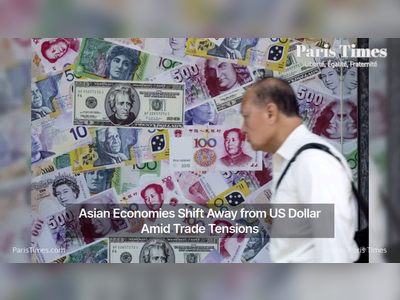
Record Growth and Concerns for the Future at La HATVP in 2024
The High Authority for Transparency in Public Life reports record activities while facing challenges related to growth management.
In 2024, the High Authority for Transparency in Public Life (La HATVP) has recorded a significant increase in its activities, marking a continuation of its upward trend since its establishment.
This surge in operations is tied to the increasing scrutiny of political and public life in France, as a response to calls for greater accountability and transparency from both the public and political spheres.
The authority is now stirring discussions among political leaders regarding the implications of its growing influence.
This development raises concerns about the potential for a crisis in the agency’s ability to manage its rapid expansion effectively.
In parallel, a notable decline has been reported in lobbying activities this year, particularly affecting various sectors except for agriculture.
For the first time since 2020, the number of documented lobbying actions has dropped compared to the previous year, indicating a shift in engagement strategies by various interest groups.
This decline in lobbying is a significant development, as it reflects changing political dynamics and possibly evolving regulations regarding lobbying practices.
The agricultural sector, however, continues to see consistent lobbying efforts, highlighting the industry's resilience and the ongoing importance of agricultural policies in the current political climate.
The Salon de l’Agriculture, an important event in the agricultural calendar, has seen attempts by its organizers to establish stricter regulations around political engagements and lobbying activities.
Though these rules aimed at managing the interactions between politicians and agricultural stakeholders were introduced, their success remains uncertain as practices continue as before.
Additionally, criticisms and debates surrounding François Bayrou's proposal for a 'Democracy Bank'—an innovative idea aimed at unlocking funding for electoral campaigns—have gained traction.
Political figures are reportedly taking a cautious approach toward the implementation of this concept, waiting to assess its viability and acceptability within the broader framework of electoral finance reform.
This surge in operations is tied to the increasing scrutiny of political and public life in France, as a response to calls for greater accountability and transparency from both the public and political spheres.
The authority is now stirring discussions among political leaders regarding the implications of its growing influence.
This development raises concerns about the potential for a crisis in the agency’s ability to manage its rapid expansion effectively.
In parallel, a notable decline has been reported in lobbying activities this year, particularly affecting various sectors except for agriculture.
For the first time since 2020, the number of documented lobbying actions has dropped compared to the previous year, indicating a shift in engagement strategies by various interest groups.
This decline in lobbying is a significant development, as it reflects changing political dynamics and possibly evolving regulations regarding lobbying practices.
The agricultural sector, however, continues to see consistent lobbying efforts, highlighting the industry's resilience and the ongoing importance of agricultural policies in the current political climate.
The Salon de l’Agriculture, an important event in the agricultural calendar, has seen attempts by its organizers to establish stricter regulations around political engagements and lobbying activities.
Though these rules aimed at managing the interactions between politicians and agricultural stakeholders were introduced, their success remains uncertain as practices continue as before.
Additionally, criticisms and debates surrounding François Bayrou's proposal for a 'Democracy Bank'—an innovative idea aimed at unlocking funding for electoral campaigns—have gained traction.
Political figures are reportedly taking a cautious approach toward the implementation of this concept, waiting to assess its viability and acceptability within the broader framework of electoral finance reform.











